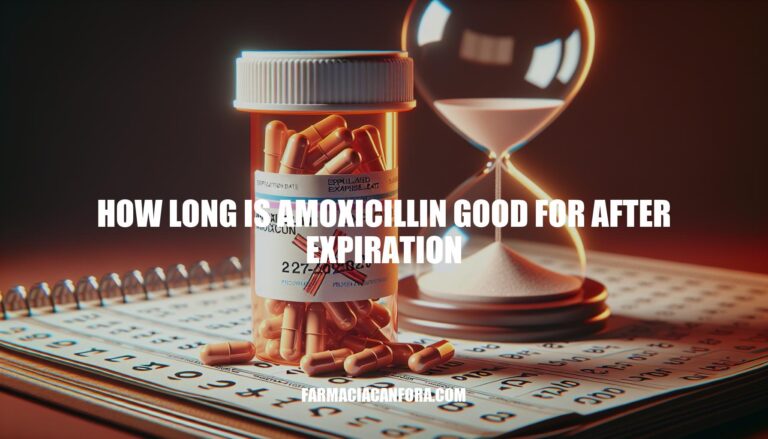


Understanding the shelf life of amoxicillin is crucial for both patients and healthcare providers. Amoxicillin, like all medications, has an expiration date that indicates the last day the manufacturer guarantees its full potency and safety. Knowing how long amoxicillin remains effective after this date helps ensure that patients receive the best possible treatment and avoid potential risks associated with degraded medication. For healthcare providers, this knowledge aids in proper medication management and patient education, ensuring optimal therapeutic outcomes.
Amoxicillin’s shelf life varies depending on its form:
These expiration periods are generally provided by manufacturers to ensure the medication’s effectiveness and safety.
The effectiveness of amoxicillin after its expiration date is influenced by several factors:
Storage Conditions:
Packaging Integrity:
Form of Amoxicillin:
These factors collectively determine how long amoxicillin remains effective after its expiration date.
Using amoxicillin past its expiration date can lead to several issues:
It’s crucial to consult healthcare professionals before using expired medication to ensure safety and proper treatment. They can provide guidance on whether a new prescription is necessary and ensure the medication is appropriate for your condition.
Amoxicillin typically remains effective for 2 years when stored properly in its original packaging, but its shelf life varies depending on its form.
Capsules and tablets generally have a longer shelf life than liquid suspensions.
It’s essential to adhere to expiration dates and proper storage practices to ensure the medication’s potency and safety.
Using amoxicillin past its expiration date can lead to reduced efficacy, inadequate treatment, and antibiotic resistance.
Consult healthcare professionals before using expired medication to ensure safe and effective treatment.